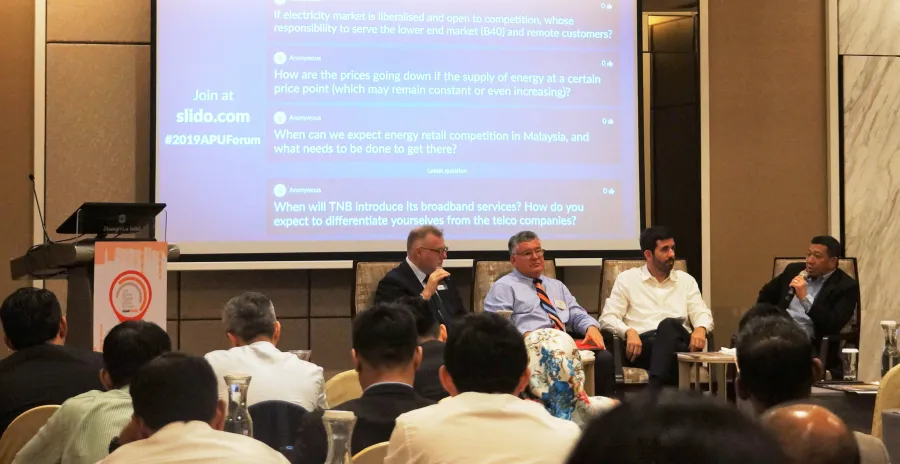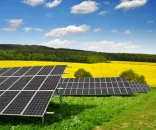
Malaysia's power companies revamp strategies for full market liberalisation
State utility TNB prioritises digital initiatives to connect producers, consumers, and T&D networks in a less rigid market.
At the Kuala Lumpur leg of the 2019 Asian Power Utility Forum, over 60 executives and decision makers from 25 IPPs in Malaysia’s power sector as well as players from Singapore strategised about structuring their businesses amidst market liberalisation and meeting the country’s energy demand.
Dr. Jochen Krauss, managing partner at Simon Kucher, said that market liberalisation will intensify competition and make it all the more challenging to maintain customer loyalty. He cited Germany’s situation post-liberalisation, in which the market share of the Big Four energy suppliers shrank from 85% in 2007 to 62% in 2015.
To stay ahead of rapidly changing industry trends, Krauss advised utilities to compete through a bipolar sales structure, in which B2B clients and mass customers are involved. “The first companies to transition and streamline their organisation will have a temporary competitive advantage and be able to gain additional market share,” he said.
Zhen-Hui Eng, sales manager, Energy Portfolio Management, ABB, shared how Malaysia is setting rules of liberalisation carefully through their incentive-based regulation (IBR), the Imbalance Cost Pass - Through (ICPT) tariff. TNB can still remain neutral as single buyers and grid system operators are ring-fenced whilst the ICPT reflects changes in fuel and generation costs in consumers' electricity tariffs.
Krauss also urged utilities to digitise highly repetitive processes in order to improve the bottom line as well as improve their omnichannel sales approach so that customers can expect touch points over multiple channels. “In the long-term, when full liberalisation takes place, organisational changes and pricing measures will come into focus,” he said.
Ir Megat Jalaluddin Bin Megat Hassan, chief retail officer of state utility TNB, shared how they are changing their vertically-integrated utility value chain into a disruptive digital value chain. The latter prioritises a communication platform that will connect transmission and distribution (T&D) networks to consumers, producers, and prosumers.
TNB is applying these changes by creating customer interactions through four offerings: e-mail tracker tools, messaging apps like WhatsApp, salesforces in their digital channels, and their own myTNB portal and apps.
The executive also noted that improving on customer interactions has raised productivity, as seen in their initiative to use WhatsApp for bill rendering which resulted in cost reductions between 40-50%. He also illustrated how the use of data analytics has improved customer retention by about 5%.
Pricing and digitalisation structures aside, decision makers in a liberalised market should also take into consideration energy policy debates on sustainability and connectivity, said Peter Godfrey, managing director, Asia Pacific, Energy Institute. In order to facilitate energy transition from traditional power sources to renewables, he highlighted that Malaysia must be geared towards decarbonisation, decentralisation, digitalisation, and decreasing consumption.
Dieter Billen, principal, Roland Berger, shared that Malaysia can tap into renewables as its energy intensity is still at par with its neighbours Thailand and Cambodia, even if it is quite ahead of them and its other ASEAN peers in terms of industrialisation. It is one of the countries expected to boost the region’s additional capacity requirements to 250GW.
According to Billen, Malaysia can capture the potential of renewables, especially solar power, through five action steps: promoting the appropriate mix of project sizes, reviewing targets and quotas, supporting infrastructure development, developing standardised PPAs, and de-risking development.
The Kuala Lumpur leg of the Asian Power Utility Forum was held on 13 May 2019 at Shangri-La Hotel, Kuala Lumpur, Malaysia. For inquiries, please email [email protected].













 Advertise
Advertise











